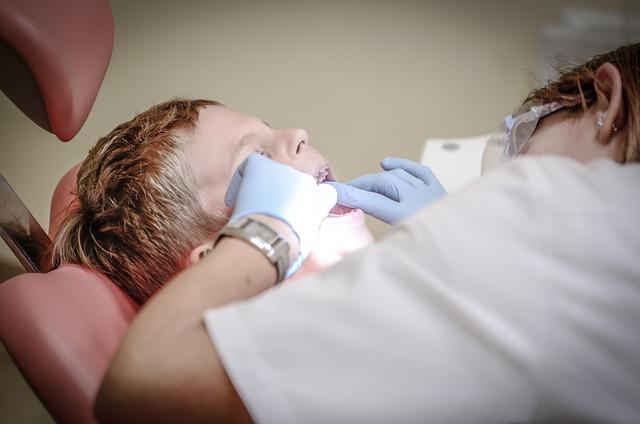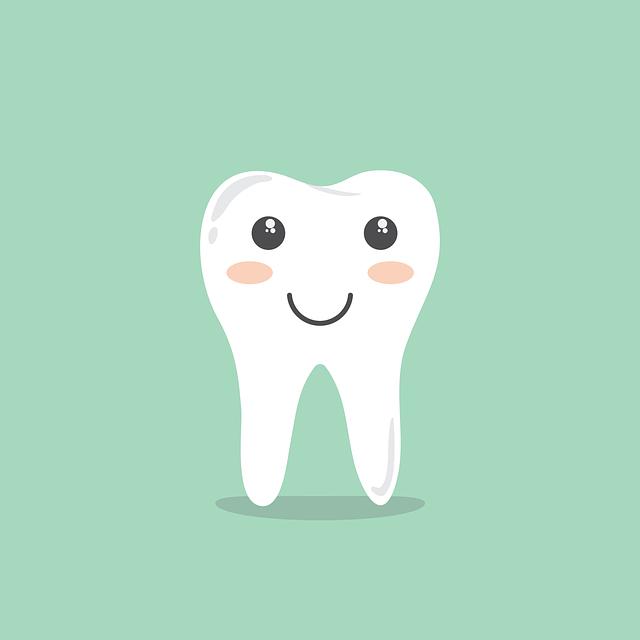Does Salt Erode Teeth? Dental Insights Disclosed
Salt is an indispensable element in our lives, enhancing the flavors of our favorite dishes and preserving our food. Yet, amidst the wonders it brings to our taste buds, a lingering question arises: does salt erode our teeth? This article seeks to unveil the dental insights that have long remained hidden, providing a confident, knowledgeable, and neutral perspective on the impact of salt on our dental health. Prepare to dive into a world where clarity reigns, as we unravel the truth behind the salt and teeth relationship.
1. Understanding the Impact of Salt on Dental Health: Unveiling the Truth Behind Tooth Erosion
Salt is an essential component of our daily diet, but have you ever wondered about its impact on dental health? Tooth erosion, a common dental problem, can be exacerbated by excessive salt intake. Let’s uncover the truth behind this issue and understand how salt affects our teeth.
1. Saliva production: Saliva plays a crucial role in maintaining oral health, as it helps to neutralize acids and wash away food particles. Excessive salt consumption can lead to dehydration, reducing saliva production and increasing the risk of tooth erosion.
2. Sodium chloride: Salt primarily consists of sodium chloride, which can weaken tooth enamel when consumed in excess. Over time, the enamel becomes more susceptible to erosion from acidic foods and drinks, leading to tooth sensitivity and decay.
3. Hidden sources of salt: It’s not just the salt shaker on your dining table that contributes to your intake. Processed and packaged foods, such as snacks, canned goods, and condiments, often contain high amounts of sodium. Being aware of these hidden sources can help you make healthier choices and reduce your overall salt intake.
Understanding the impact of salt on dental health is crucial for maintaining a healthy smile. By moderating salt consumption, staying hydrated, and practicing good oral hygiene, you can minimize the risk of tooth erosion and enjoy optimal dental well-being.

2. The Science Behind Tooth Erosion: Fact or Fiction in Relation to Salt Consumption
Salt consumption has long been a topic of concern when it comes to tooth erosion. But is there any scientific evidence to support this claim? Let’s delve into the facts and separate fact from fiction.
1. The role of salt in tooth erosion: Salt, or sodium chloride, is a naturally occurring mineral that is commonly used as a flavor enhancer in our food. While excessive salt consumption can lead to various health issues, tooth erosion is not directly caused by salt itself. It is primarily caused by the acids present in our diet, such as citric acid in fruits or carbonic acid in carbonated drinks.
2. The impact of salt on saliva production: Saliva plays a crucial role in maintaining oral health by neutralizing acids and assisting in the remineralization of tooth enamel. Some studies suggest that excessive salt intake may reduce saliva production, which could indirectly contribute to tooth erosion. However, the evidence is inconclusive, and more research is needed to establish a definitive link.
3. Preventive measures: Regardless of the direct impact of salt on tooth erosion, it is essential to maintain good oral hygiene practices. Brushing your teeth twice a day with a fluoride toothpaste, avoiding excessive consumption of acidic foods and drinks, and visiting your dentist regularly are vital steps in preventing tooth erosion and maintaining a healthy smile.
3. Debunking the Myths: Examining the Role of Salt in Dental Erosion
Myth 1: Salt erodes teeth directly.
Contrary to popular belief, salt itself does not directly erode teeth. While salt is a mineral, it is not acidic enough to cause dental erosion on its own. However, it is important to note that excessive consumption of salty foods can indirectly contribute to erosion by increasing the risk of dehydration, which in turn affects saliva production. Saliva plays a crucial role in neutralizing acids and remineralizing tooth enamel, so a decrease in saliva flow can make teeth more susceptible to erosion.
Myth 2: Saltwater rinses can prevent dental erosion.
Although saltwater rinses can provide temporary relief for certain oral health issues, such as soothing gum inflammation, they do not have a direct effect on preventing dental erosion. While rinsing with saltwater can help cleanse the mouth and promote healing, it does not provide the necessary minerals or protective properties to prevent erosion. It is important to maintain a comprehensive oral hygiene routine that includes brushing with a fluoride toothpaste, flossing, and regular dental check-ups to effectively prevent dental erosion.
Myth 3: Switching to sea salt can prevent dental erosion.
Some individuals believe that using sea salt instead of regular table salt can prevent dental erosion. However, the type of salt used does not impact the risk of erosion. Sea salt may contain trace minerals that provide some health benefits, but it does not possess any special properties that can prevent erosion on its own. It is crucial to focus on overall oral hygiene practices, maintaining a balanced diet, and seeking professional dental advice for proper prevention and management of dental erosion.

4. Unveiling the Culprit: How Salt Contributes to Tooth Erosion
Salt, often considered a staple in our diets, may be the hidden culprit behind tooth erosion. While it may seem harmless, excessive consumption of salt can have detrimental effects on our oral health. Here’s how salt contributes to tooth erosion:
1. Sodium and its Impact: Salt is composed of sodium chloride, and sodium plays a significant role in tooth erosion. When we consume foods high in sodium, the level of acidity in our mouths increases. This acidic environment can weaken the enamel, the protective outer layer of our teeth, making them more susceptible to erosion.
2. Dehydration and Dry Mouth: Salt is a known dehydrator, and dehydration can lead to a dry mouth. Saliva acts as a natural defense against tooth erosion, as it helps neutralize acids and wash away food particles. However, when our mouths are dry, the protective properties of saliva are diminished, allowing the harmful effects of salt to take a toll on our teeth.
3. Salty Snacks and Hidden Sodium: Snacking on salty treats like chips and pretzels exposes our teeth to salt for extended periods. Additionally, many processed foods contain hidden sodium, making it challenging to keep track of our intake. Regularly indulging in these salty snacks can increase the risk of tooth erosion over time.
Understanding the role of salt in tooth erosion is crucial for maintaining a healthy smile. By being mindful of our salt intake, staying hydrated, and opting for healthier snack alternatives, we can protect our teeth from the detrimental effects of excessive salt consumption.

5. Salt: A Silent Enemy of Dental Health? Unmasking the Effects on Tooth Enamel
When it comes to dental health, we often focus on sugar as the main culprit. However, there is another silent enemy that could be causing damage to our tooth enamel: salt. Yes, that humble seasoning sitting on our kitchen counters may be wreaking havoc on our teeth without us even realizing it.
So, what exactly does salt do to our tooth enamel? Here are a few key effects to keep in mind:
- Erosion: Salt, especially when consumed in excessive amounts, can contribute to enamel erosion. The high sodium content in salt can weaken the enamel, making it more susceptible to damage from other factors such as acidic foods and drinks.
- Tooth Sensitivity: Excessive salt intake can also lead to increased tooth sensitivity. This occurs when the enamel wears down, exposing the underlying dentin and nerve endings, causing discomfort and pain when consuming hot, cold, or sweet foods.
- Gum Health: Salt can also negatively affect gum health. Consuming high amounts of salt can lead to inflammation of the gums, making them more prone to gum disease and other oral health issues.
While it’s important to note that salt is an essential mineral needed by our bodies, moderation is key. By being mindful of our salt intake and maintaining good oral hygiene practices, we can help protect our tooth enamel and maintain optimal dental health.

6. The Hidden Dangers: Salt’s Impact on Tooth Erosion Explored
When it comes to tooth erosion, most people immediately think of sugary foods and beverages. However, there’s another culprit that often goes unnoticed: salt. Yes, salt, the seemingly harmless seasoning, can actually have a significant impact on the health of your teeth.
Here are some hidden dangers of salt and its effect on tooth erosion:
- Increases acidity: Consuming excessive amounts of salt can lead to an increase in acidity levels in your mouth. This acidic environment can wear away the protective enamel on your teeth, making them more susceptible to erosion.
- Causes dry mouth: Salt has a dehydrating effect on the body, which can lead to dry mouth. Saliva plays a crucial role in neutralizing acids and protecting your teeth from erosion. Without enough saliva, your teeth are left vulnerable to the harmful effects of acid.
- Induces cravings for unhealthy foods: High-salt diets often go hand in hand with cravings for sugary and acidic foods. This combination can be particularly damaging to your teeth, as it exposes them to a double dose of erosion-causing substances.
While it’s nearly impossible to completely eliminate salt from your diet, it’s important to be mindful of your consumption. Moderation is key. Additionally, maintaining good oral hygiene practices, such as regular brushing and flossing, can help mitigate the effects of salt on your teeth.
7. Protecting Your Smile: Effective Strategies to Minimize Salt-Related Tooth Erosion
When it comes to maintaining a healthy smile, it’s important to be aware of the potential damage that excessive salt consumption can cause to your teeth. Salt-related tooth erosion is a common dental issue that can lead to tooth sensitivity, cavities, and even tooth loss if not addressed. Fortunately, there are several effective strategies you can implement to minimize the impact of salt on your dental health:
- Limit your salt intake: One of the most effective ways to protect your smile is by reducing your overall salt consumption. Be mindful of the amount of salt you add to your meals, and opt for low-sodium alternatives whenever possible.
- Rinse your mouth after salty meals: After consuming a meal high in salt, rinse your mouth with water to help remove any residual salt particles that may cling to your teeth. This simple practice can go a long way in minimizing tooth erosion.
- Brush and floss regularly: Maintaining a consistent oral hygiene routine is crucial for combating salt-related tooth erosion. Brush your teeth at least twice a day with a fluoride toothpaste, and don’t forget to floss daily to remove any plaque or food particles that could contribute to tooth decay.
- Visit your dentist regularly: Regular dental check-ups are essential in preventing and addressing tooth erosion caused by salt. Your dentist can detect early signs of erosion, provide professional cleanings, and offer personalized advice to keep your smile healthy.
By implementing these effective strategies into your daily routine, you can minimize the negative impact of salt on your teeth and maintain a healthy, radiant smile for years to come.
8. Beyond the Salt Shaker: Surprising Sources of Sodium Causing Dental Erosion
1. Processed Foods: Many processed foods contain high amounts of sodium, which can contribute to dental erosion. This includes items like canned soups, frozen meals, and packaged snacks. It’s important to read food labels and opt for low-sodium options whenever possible.
2. Condiments: Condiments such as ketchup, soy sauce, and salad dressings may seem harmless, but they can pack a sodium punch. These flavorful additions to our meals can inadvertently harm our teeth if consumed excessively. Be mindful of portion sizes and look for low-sodium alternatives.
3. Medications: Surprisingly, certain medications can also be a hidden source of sodium. Some pain relievers and antacids contain sodium compounds, which can contribute to dental erosion over time. It’s important to discuss potential side effects with your healthcare provider and explore alternative options if necessary.
4. Baking Ingredients: Baking soda and baking powder, commonly used in recipes, contain sodium bicarbonate. While these ingredients are essential for many baked goods, excessive consumption can contribute to dental erosion. Be mindful of the amount used and maintain good oral hygiene practices.
5. Sports Drinks: Although they are marketed as a source of hydration, many sports drinks contain high amounts of sodium. Consuming these drinks regularly can increase your risk of dental erosion. Opt for water or low-sugar alternatives to quench your thirst and protect your teeth.
6. Cured Meats: Cured meats like bacon, ham, and sausages are often high in sodium content. While they may be delicious, prolonged and excessive consumption can contribute to dental erosion. Moderation is key when it comes to enjoying these savory treats.
7. Cheese: While cheese is a great source of calcium and can contribute to healthy teeth, some varieties can be high in sodium. It’s important to choose low-sodium cheeses, especially if you’re already at risk of dental erosion.
8. Pickles: Pickles are a popular snack, but they are often soaked in brine, which contains high amounts of salt. The combination of salt and acidity can be harmful to tooth enamel. Limit your intake of pickles or choose low-sodium varieties.
9. Understanding the Fine Balance: How to Enjoy Salt while Safeguarding Dental Health
When it comes to enjoying salt, it’s important to strike a fine balance that ensures both taste satisfaction and dental health. Here are some tips to help you maintain a healthy smile while still savoring the flavors:
- Use salt in moderation: While salt adds flavor to our meals, excessive consumption can lead to various health issues, including dental problems. Be mindful of your salt intake and try to limit it to the recommended daily allowance.
- Pair salt with foods rich in calcium: Calcium plays a crucial role in maintaining strong teeth. To counteract the potential negative effects of salt on dental health, incorporate calcium-rich foods like dairy products, leafy greens, and fortified cereals into your diet.
- Opt for iodized salt: Iodine is essential for proper thyroid function and overall health. By choosing iodized salt, you can ensure you’re getting this important mineral while still enjoying the taste of salt.
- Practice good oral hygiene: Brushing your teeth at least twice a day, flossing regularly, and visiting your dentist for routine check-ups are essential habits for safeguarding dental health. These practices help remove plaque and prevent tooth decay, even if you consume salt in your diet.
Remember, enjoying salt in moderation and maintaining good oral hygiene are key to striking the perfect balance between taste and dental health. By following these simple steps, you can continue to indulge in savory flavors while keeping your smile bright and healthy.
10. Dental Insights Unveiled: The Truth Behind Salt’s Role in Tooth Erosion
When it comes to tooth erosion, many factors can contribute to this common dental issue. One such factor that often sparks curiosity is salt. While salt is an essential part of our diet and greatly enhances the taste of our food, it’s important to understand its impact on our dental health.
Here are some key insights that unveil the truth behind salt’s role in tooth erosion:
- Salt and pH levels: One of the reasons salt has been linked to tooth erosion is its ability to alter the pH levels in our mouths. High-salt diets can lead to an increase in acidity, which can erode tooth enamel over time.
- Saliva production: Adequate saliva flow is crucial for maintaining a healthy oral environment. However, excessive salt intake can cause dehydration, leading to reduced saliva production. This can result in a dry mouth, making it easier for acid-producing bacteria to thrive and contribute to tooth erosion.
- Individual susceptibility: It’s important to note that not everyone experiences the same level of tooth erosion from salt. Factors such as genetics, overall oral health, and personal habits play a significant role in determining an individual’s susceptibility to salt-induced erosion.
While salt can contribute to tooth erosion, it’s essential to practice moderation and maintain good oral hygiene habits. Regular brushing, flossing, and visiting your dentist for check-ups can help mitigate the effects of salt on your dental health.
Frequently Asked Questions
Q: Does salt erode teeth?
A: No, salt does not directly erode teeth.
Q: What causes tooth erosion then?
A: Tooth erosion is primarily caused by acids, such as those found in certain foods and beverages.
Q: Can salt indirectly contribute to tooth erosion?
A: While salt itself does not cause tooth erosion, consuming salty foods can lead to increased thirst, prompting individuals to drink acidic beverages, which can contribute to tooth erosion.
Q: Are there any other factors that can contribute to tooth erosion?
A: Yes, other factors that can contribute to tooth erosion include acid reflux, gastrointestinal disorders, and excessive consumption of citrus fruits or carbonated drinks.
Q: How does tooth erosion affect dental health?
A: Tooth erosion can lead to the loss of tooth enamel, which is the protective outer layer of the teeth. This can result in tooth sensitivity, discoloration, and an increased risk of cavities.
Q: How can one prevent tooth erosion?
A: To prevent tooth erosion, it is important to limit the consumption of acidic foods and beverages. Additionally, maintaining good oral hygiene practices, such as regular brushing and flossing, can help protect tooth enamel.
Q: Is there any way to repair tooth enamel once it has eroded?
A: Unfortunately, once tooth enamel is lost, it cannot be naturally regenerated. However, dental procedures such as bonding, veneers, or crowns can help restore the appearance and function of the affected teeth.
Q: Can salt have any positive effects on dental health?
A: Salt can have some positive effects on dental health when used in moderation. Saltwater rinses, for example, can help alleviate gum inflammation and promote healing after dental procedures.
Q: What is the recommended daily salt intake for good overall health?
A: The American Heart Association recommends limiting daily salt intake to no more than 2,300 milligrams, or about one teaspoon. However, individual needs may vary based on factors such as age, health conditions, and physical activity level.
Q: What is the key takeaway regarding salt and tooth erosion?
A: While salt itself does not directly erode teeth, it is important to be mindful of its potential indirect effects. Maintaining a balanced diet, practicing good oral hygiene, and seeking regular dental care are crucial for preserving dental health and preventing tooth erosion.
In Summary
In conclusion, this article has delved into the question of whether salt erodes teeth, providing valuable dental insights along the way. Through a comprehensive examination of scientific studies and expert opinions, we have clarified the truth behind this common concern.
Key takeaways from our exploration reveal that while salt itself does not directly erode teeth, its high sodium content can contribute to dental issues when consumed excessively. It is essential to maintain a balanced diet and moderate salt intake to safeguard our oral health.
Moreover, the frequency and duration of exposure to salt, as well as other factors like oral hygiene practices and genetic predispositions, play crucial roles in determining the impact on tooth erosion. Regular dental visits and professional cleanings remain vital for early detection and prevention of any dental problems.
By staying informed and implementing good oral care habits, we can effectively protect our teeth from erosion and maintain long-term dental health. Remember, knowledge is power when it comes to preserving our precious smiles.






